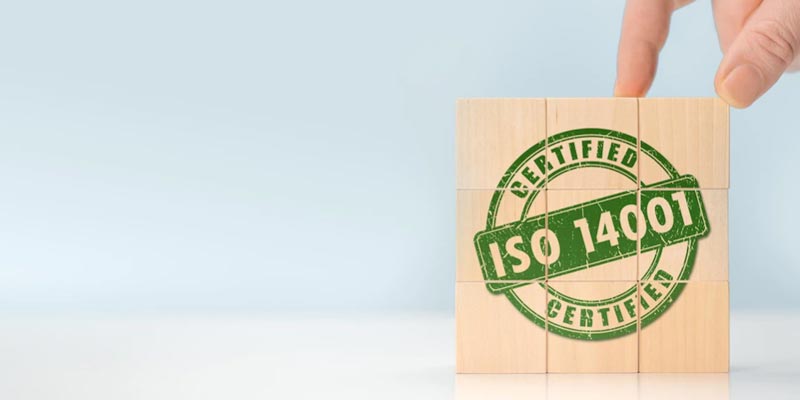
Requirements of ISO 14001: Clauses and Controls
Using corrective action steps, the ISO 14001 standard helps organisations imp...
Read MoreAn ISO 14001 lead auditor is a professional equipped with the necessary expertise to perform an Environmental Management System (EMS) audit by applying widely recognised audit techniques, procedures and principles. During their training, a lead auditor acquires the knowledge and skills to plan and carry out internal and external audits in compliance with ISO 19011 and ISO 17021. In this article, we will discuss the roles and responsibilities of an ISO 14001 lead auditor and the perquisites needed for certification. ISO Consulting will help you get more information on this topic.

The ISO 14001 standard provides organisations with an interconnected set of elements to help establish environmental policies and objectives. The system elements include the organisation’s structure, roles, responsibilities, planning, operation, performance evaluation and improvement strategies. The standard helps organisations manage their environmental aspects, and fulfil compliance obligations while addressing risks and opportunities through the implementation of an EMS.
The aim of the EMS is to help organisations appropriately respond to changing environmental conditions. The standard specifies requirements that enable an organisation to achieve its intended outcomes as per its environmental policies. An organised approach to environmental management can provide top management with the information to build a successful operation that contributes to long-term sustainable development. Essentially, an EMS helps enhance sustainability by:
For more information about ISO 14001 and its goals, we suggest you read the article What is ISO 14001.
The individual must have prior knowledge and understanding of the environmental management system. Usually, the ISO 14001 lead auditor training course is designed for top management, EMS managers and officers, EMS internal auditors, management system professionals and consultants, personnel in charge of legal requirements and anyone interested in the environmental management system.
During the training programme, candidates learn about the standards and regulatory frameworks associated with EMS and ISO 14001. The fundamental concept and principles of environmental management are also taught. However, the basis of these training programmes are audit principles which focus on the preparation and launch of an audit.
Candidates also learn on-site audit activities such as the intricacies associated with stage two audit, communication techniques to be utilised during the audit, audit procedures, creating auditor’s plans and drafting audit findings.
Candidates learn about closing the audit by understanding how to document the audit, write a quality review, evaluate action plans beyond the initial audit, manage an internal audit program and assess the competence of other audit team members.
The learning objectives of an ISO 14001 lead auditor training program is to understand the operations of an EMS and acknowledge the correlation between ISO 14001, ISO 14040 and other regulatory frameworks.
Additionally, candidates also learn about an auditor’s role including how to plan, lead and conduct follow ups on a management system audit in accordance with ISO 19011.
As a result of the training, candidates learn how to lead an audit, interpret the requirements of ISO 14001 in the context of an EMS audit and acquire the competencies of a lead auditor in compliance with ISO 19011. In general, the lead auditor training program has a duration of five days.

A lead auditor oversees an organisation’s environmental management system requirements, including its contacts, leadership commitments, support available, operational processes, performance evaluation and improvement strategies. The lead auditor uses different auditing principles to plan an internal audit. Conducting an opening meeting is one of the prime responsibilities of a lead auditor.
The agenda of the opening meeting include an introduction of personnel, confirmation of audit objectives, confirmation of the audit scope, criteria confirmation, review of the audit plan, confirmation of language or communication channels, explanation of audit methodology, the delegation of roles, information of availability of resources and confirmation of reporting methods.
Another core responsibility of a lead ISO 14001 auditor is to conduct audit.
During the audit, the auditor has to ensure that the organisation’s EMS is ISO 14001 compliant, verify that the organisation is taking suitable actions to meet the standard requirements and address any issues that may develop.
Furthermore, the lead auditor is incharge of identifying ways to improve the implementation of the standard within the organisation.
The findings of an audit are discussed in a closing meeting with the auditor and the auditee. During a closing meeting, the restrictions or the limitations of the audit are reiterated, and the client is informed about industry-specific best practices that can enhance their environmental performance.
ISO certification gives your organisation a competitive edge. By helping you increase operational efficiency and overall product consistency, your business credibility and authority will soar to new heights.

Copyright © 2022 The ISO Council | Privacy Policy